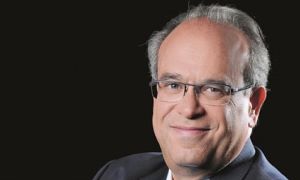It is a doctor’s ethical duty to help correct ‘quit or die’ tobacco control policies shaped by non-clinicians because such policies have failed over the past 27 years to reduce smoking-induced death and disease, said the former president of France's National Cancer Institute.
Oncologist Professor David Khayat, a globally influential former policy advisor to long-serving ex-French Prime Minister Jacques Chirac, was delivering the keynote address at the 3rd Global Scientific Summit on Tobacco Harm Reduction: Novel products, research & policy*, reports Chris Bateman for MedicalBrief. The speech was titled “Could the scientific and medical community play a role in making policy-makers reconsider tobacco control strategies?”
Khayat said counter-productive tobacco policies were shaped mainly by epidemiologists, not clinicians.
Tobacco smoking was recorded as the leading cause of cancer globally from 1990 to 2017, followed by alcohol and a high sodium content diet, with six million deaths per year currently – predicted to rise to eight million deaths per year within 10 years.
When 181 countries signed the World Health Organization-led Global Convention on Tobacco Control in 2005, it was to eradicate smoking. Yet smoking rates had since flat-lined, exposing the policy framework as unfeasible. The policy framework, he said, was a total failure.
“So, what does tobacco control then mean for patients? I can summarise that in one sentence, the message is ‘quit or die’,” contended Khayat, who is currently Professor of Medical Oncology at the Bizet Clinic in Paris.
As a doctor, he could not countenance this.
Luckily, many Tobacco Convention signatory countries no longer accepted the failed global policy, with dramatically lowered mortality and morbidity data in those that adopted harm reduction policies once evidence of their efficacy emerged.
Nordic countries like Norway, Sweden and Iceland accepted the chewing tobacco snus, with impressive results, while the United Kingdom allowed e-cigarettes. Sweden has boasted the lowest tobacco-related mortality in Europe since it allowed and encouraged the use of snus.
Cancer ‘dose-responsive’ to toxins
Cancer was dose-responsive when it came to toxic carcinogens, whether these were delivered via food, water, air, irradiation or the human papillomavirus, said Khayat.
“So, smoking one or 20 cigarettes is not the same risk. The more you smoke the more carcinogens. Eating 100 grams of processed meat is very different to eating one kilogram.”
Of the 6,000 ultra-fine chemicals released by burning tobacco, at least 80 were carcinogenic or potentially carcinogenic. Once the temperature of tobacco rose above 350 degrees centigrade, it emitted a toxic black smoke.
He praised former United Kingdom Prime Minister Margaret Thatcher’s government for pioneering harm reduction during the 1980s AIDS epidemic by introducing needle exchanges for drug users, resulting in the lowest rate of HIV in drug users worldwide.
However, the UK had over the past 12 years introduced a far more conservative drugs policy born out of the centre-right think-tank the Centre for Social Justice. The outcome was a doubling of UK drug related fatalities since 2011, with one in three European deaths now in the UK.
“Again, the message is this; if you cannot help them quit, help them from the harm suffered from addiction – whether it’s diet, fast driving, sun tanning, sex or sugar,” Khayat stressed.
He quipped: “Very little in life is without poison; it’s just a matter of dose.”
Addiction trumps crude policy
“Patient rights are human rights – we must help them live by any means and yes, quitting tobacco is by far the best option, but 64% of smokers diagnosed with cancer continue to smoke,” he added.
Harm reduction acknowledged a patient’s freedom of choice but tried to prevent harm through innovation.
“As doctors we must provide the future patient with the best care. Doctors are in the middle of life and death, sympathy, sufferance and hope. It’s not a matter of ‘could the scientific and medical community play a role in making policy-makers reconsider tobacco control strategies? but should they?” he said.
Khayat's answer was unequivocal: “Yes, this is a duty – and the honour – of our profession.”
The virtual 3rd Global Scientific Summit on Tobacco Harm Reduction: Novel products, research & policy was organised by the University of Thessaly and the University of Patras with the University of West Attica and the National and Kapodistrian University of Athens.
[link url="https://www.nosmokesummit.org"]3rd Global Scientific Summit on Tobacco Harm Reduction: Novel products, research & policy[/link]

